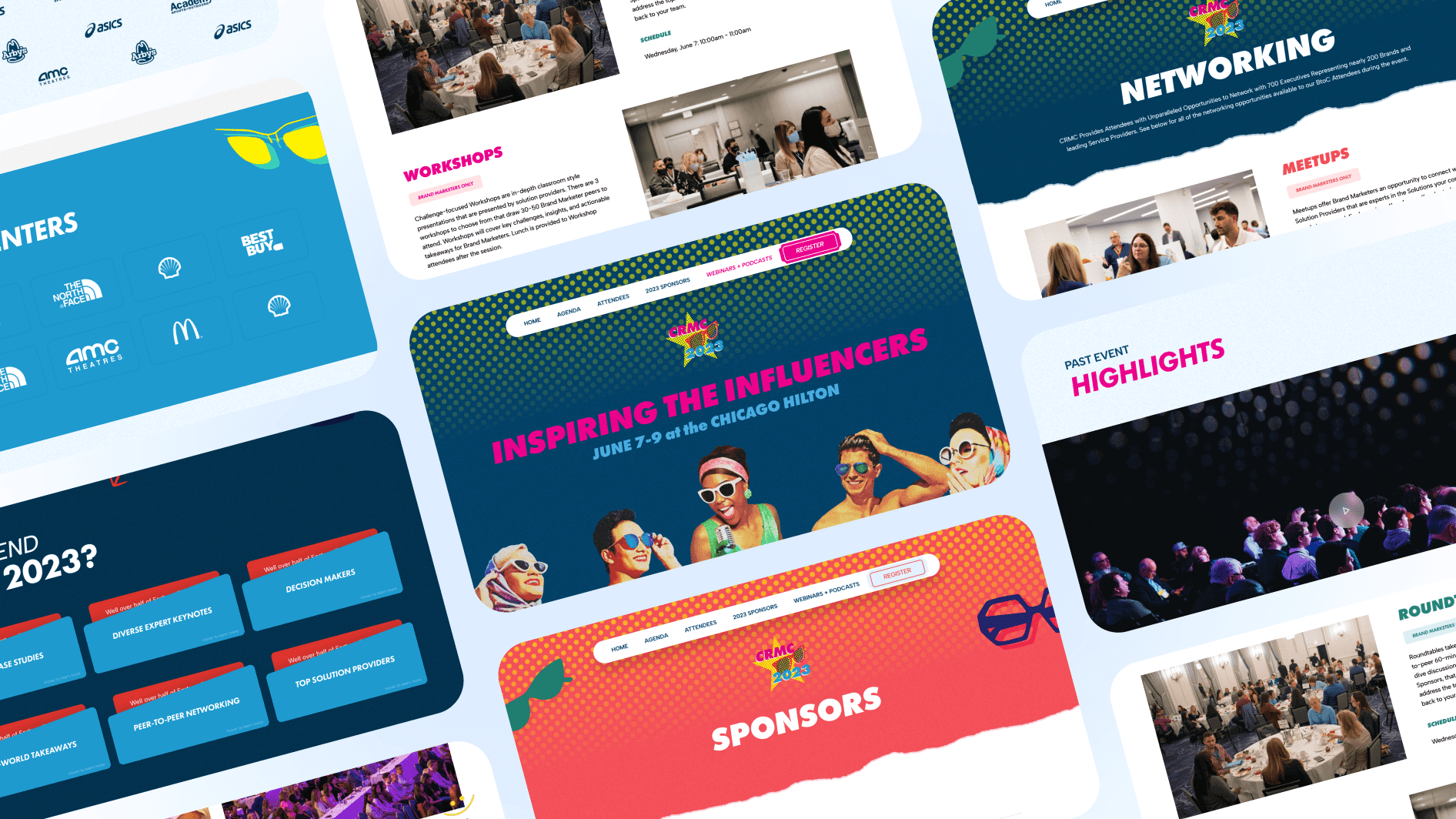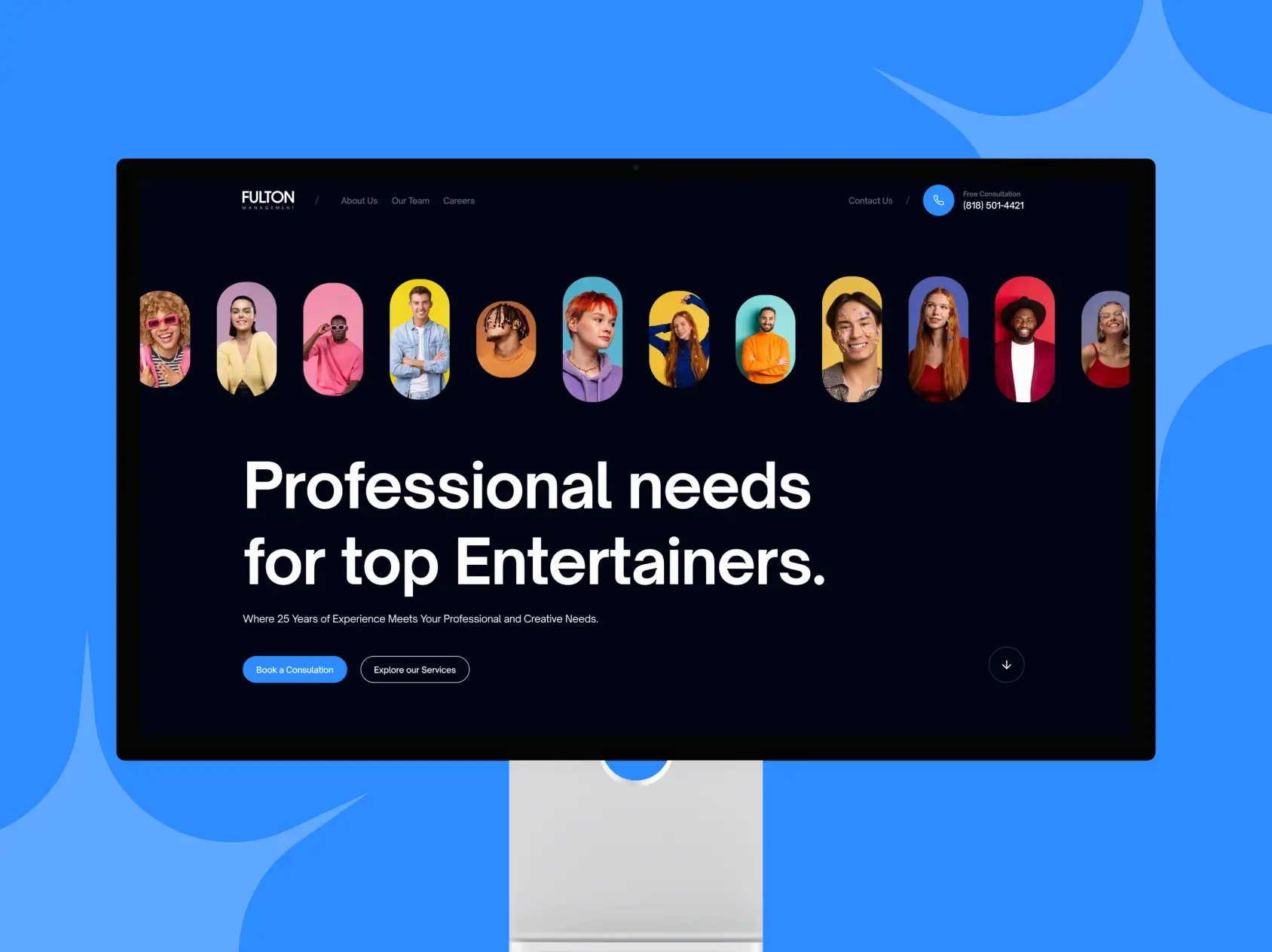Toronto, ON M5R 3K5

At Brand Vision, we build audience‑ready brands, websites, and search programs for entertainment. Our in‑house team in Toronto and Chicago works with artists, labels, venues, festivals, and live event organizers across Canada and the U.S., delivering fast, accessible, and measurable systems that help fans discover, engage, and buy.
As a specialized entertainment web design agency, we plan, design, and build event website design that makes discovery and action easy. Roster, releases, shows, and press live in clear structures with fast pages, clean navigation, and editor guardrails. We support tour calendars, ticketing integrations, landing pages for campaigns, and governance so your team can ship updates quickly without drift. This foundation scales with your schedule.
As an entertainment branding agency, we align positioning, voice, and identity so every touchpoint is consistent. Stakeholder input and audience research set the strategy, then we translate it into logos, type, color, photography, and usage rules. We deliver EPK and press‑kit templates, social and campaign kits, and a concise brand guide your team can run. We connect the system to entertainment content marketing so stories land on the right channels.
Our Entertainment SEO services turn search into sales, streams, and seats. We strengthen technical health, tighten site structure, and build internal links that connect artists, releases, shows, venues, and news. We write plain‑language pages around fan intent, support local visibility for venues and festivals, and align with tour marketing strategy. Results are tracked with clear dashboards so teams know what to scale next.
UX patterns for roster, shows, and releases that reduce friction. Mobile‑first flows, readable type, clear states, and forms that respect privacy. Reusable components keep pages consistent as you launch campaigns.
Actionable audits and guidance. In focused sessions we review site, content, analytics, and SEO, then deliver a 90‑day plan your team can execute or we can deliver with you.

At Brand Vision, we have delivered 50+ projects across labels, venues, festivals, talent, PR, and events. From Toronto and Chicago, our senior in-house team ships accessible, fast, measurable systems that are easy to run. We pair audience-first UX with content and search so fans can sample, follow, and buy, creating entertainment web design and entertainment SEO that move tickets and merch. Brand Vision Insights guides campaigns, releases, and roster pages, serving as your entertainment marketing agency partner for growth.
Paquin is a multi‑discipline entertainment company. We delivered a scalable WordPress build, clear IA for divisions and rosters, launch‑ready SEO on a new domain, and editor training.
Client review on Clutch: “We were impressed with their speed and workflow.”

CRMC is a major industry conference. We modernized the site around sessions, speakers, and sponsors, streamlined paths to register or inquire, and improved speed and clarity.
Client review on Google: “The final product is a professional, clean, and easy‑to‑navigate site.”

Fulton is a talent management firm. We reframed roster and services, built a component library for showcases, and simplified routes to contact and submission.
Client review on Clutch: “What I found most impressive was their genuine commitment to understanding our needs.”

P&C is a PR and communications agency. We shipped a fast, editor‑friendly site with clear services, case storytelling, and a press‑ready work archive.
Client review on Google: “Their attention to detail and creativity made all the difference.”

In 2024, CRMC site extended the component system with cleaner navigation, faster registration paths, and sponsor discovery that works on mobile.
Client review on Google: “The team was easy to work with, quick to respond, and brought fresh ideas to the table.”

Keepers offers programs and coaching. We clarified offer and booking, produced reusable components for programs and testimonials, and improved mobile performance.
Client review on Clutch: “Their response times are exceptional, and they are always courteous during communication.”
